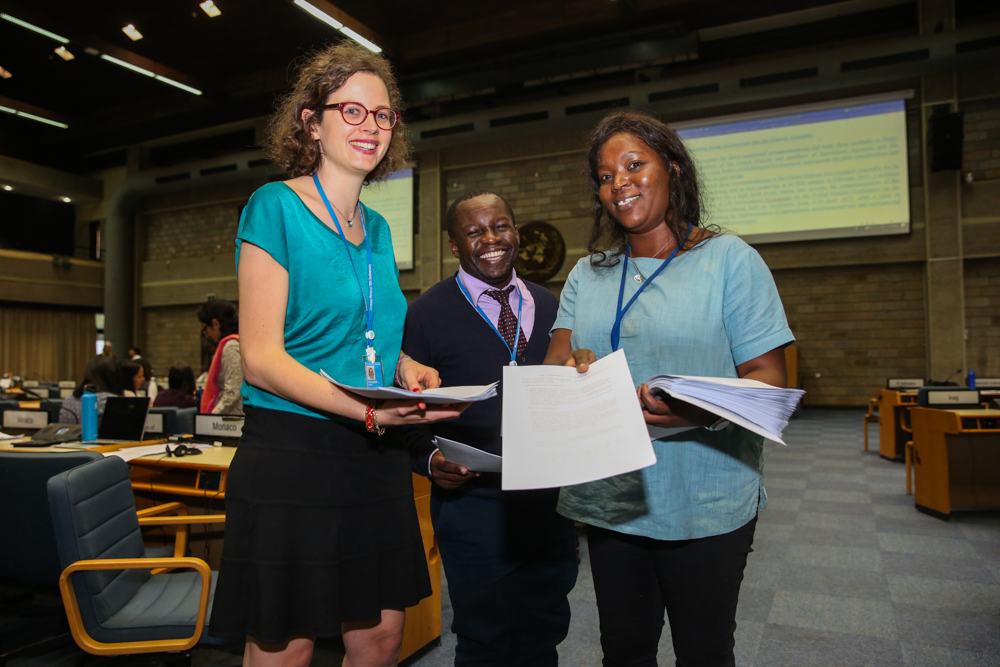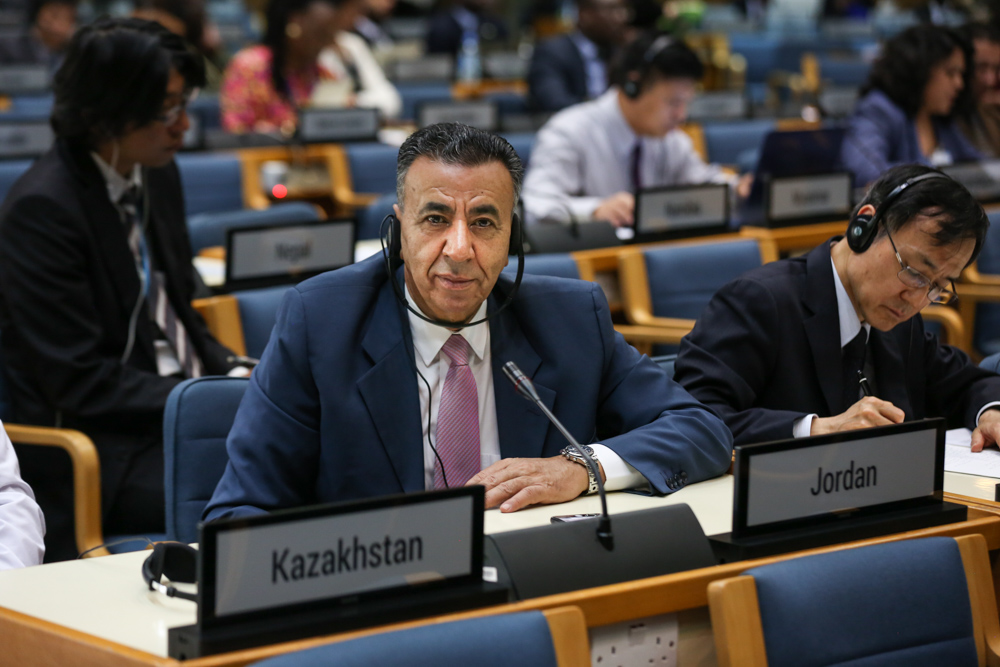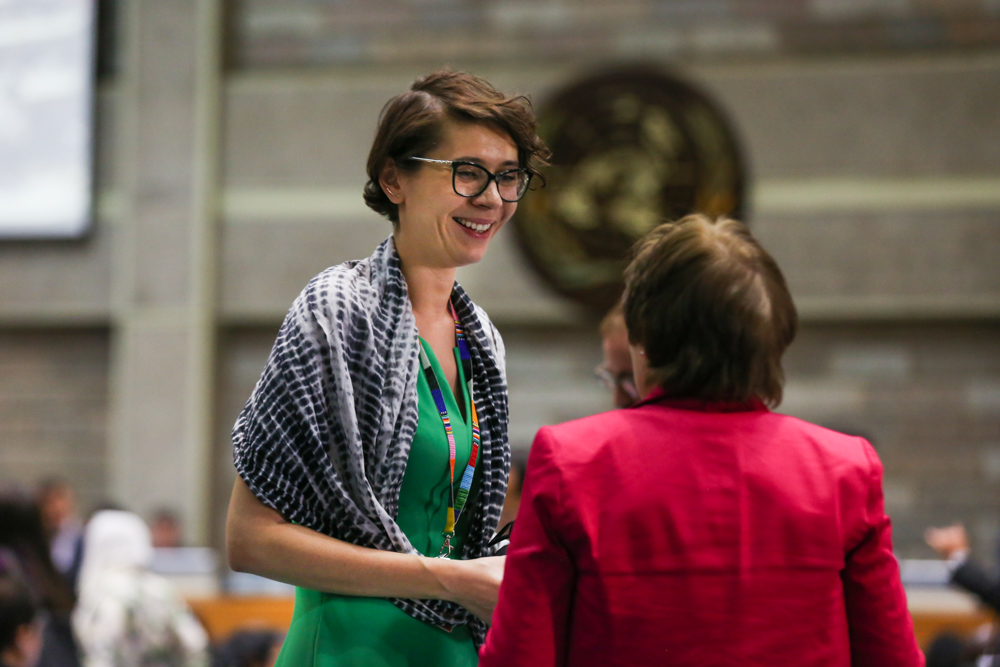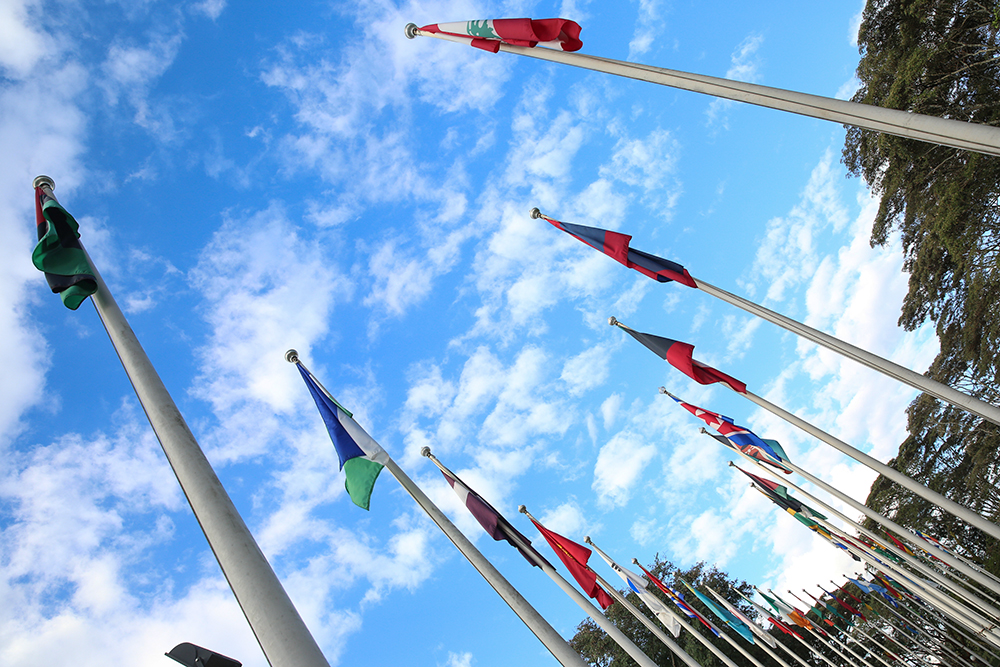Highlights for Wednesday, 22 May 2019
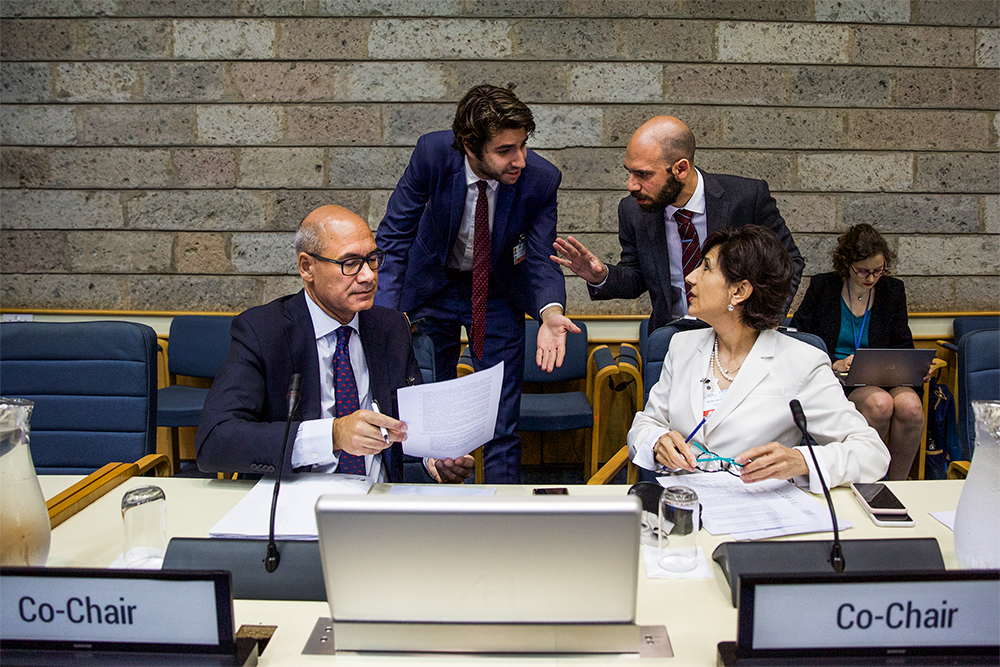
The Co-Chairs discuss amendments to the draft text.
 The third and final session of the Ad Hoc Open Ended Working Group completed its work in the early hours of Thursday morning, having agreed a set of recommendations to the United Nations General Assembly. In closing remarks, Co-Chair Francisco António Duarte Lopes, Portugal, conceded that the outcome was a “weak result but consensual” which can and will be built upon. The continuing process is expected to culminate in a political declaration and a UN high level meeting in 2022, marking fifty years since the UN Conference on the Human Environment, at which UNEP was created. Just after 1.00 am on 23 May, the OEWG agreed to recommend to the UN General Assembly:
The third and final session of the Ad Hoc Open Ended Working Group completed its work in the early hours of Thursday morning, having agreed a set of recommendations to the United Nations General Assembly. In closing remarks, Co-Chair Francisco António Duarte Lopes, Portugal, conceded that the outcome was a “weak result but consensual” which can and will be built upon. The continuing process is expected to culminate in a political declaration and a UN high level meeting in 2022, marking fifty years since the UN Conference on the Human Environment, at which UNEP was created. Just after 1.00 am on 23 May, the OEWG agreed to recommend to the UN General Assembly:
Objectives guiding the recommendations (on: environmental protection; upholding commitments under international environmental law; strengthening international environmental law; full implementation of the 2030 Agenda and the outcome of the Rio+20 Conference in 2012, “The Future We Want”; and not undermining existing relevant instruments).
Substantive recommendations (on the role of UNEP/UNEA; international environmental law and means of implementation; principles; information sharing by the scientific, technical, and technological communities; policy coherence among multilateral environmental agreements and collaboration; implementation of environmental law at the national level; mainstreaming the environment; stakeholder engagement; Montevideo Programme V; and UN system-wide coordination).
The final day was punctuated by a series of informal consultations conducted by Co-Chairs Duarte Lopes and Mudallali. Delegates struggled to agree on a number of key elements in the draft recommendations drawn up in a series of drafts. The difficulties emerged in a few of the substantive recommendations and in section three, on considerations of further work. On the substance, there was significant disagreement on:
The link between efforts to enhance implementation of international environmental law and provision of means of implementation.
Recognition of the role of discussions on principles of international environmental law for enhancing implementation, and the ongoing but separate work of the International Law Commission.
Some delegates linked these issues to section three of the Co-Chairs’ draft dealing with recommendations to the United Nations General Assembly on how the OEWG’s substantive recommendations are to be taken forward. At a late evening plenary, hours after the meeting had been scheduled to end, the Co-Chairs were forced to suspend proceedings and re-engage with delegations over differences – notably between the European Union and the United States – over the aim of next steps and the role of the United Nations Environment Assembly. The EU proposed a UN high-level meeting, to agree on a political declaration, while the US saw no need for specifying this, saying UNEA would define the next steps in the process, which could be simply making the substantive recommendations agreed tonight available to states. On means of implementation, Egypt, supported by Argentina, Ecuador, India, El Salvador, Morocco, Bolivia, Nicaragua, Honduras, and Uganda, noted that this part of the Co-Chair’s recommendations no longer referred to “increasing” support and “building on” AAAA and the 2030 Agenda. Brazil noted the linkage with principles. The final elements of agreement focused on operational recommendations to the UN General Assembly on considerations of further work:
Circulate the above-mentioned recommendations and make them available to State Members of the UN and members of Specialized Agencies and the governing bodies of MEAs for their consideration and action, as appropriate; and
Forward these recommendations to the United Nations Environment Assembly for its consideration and prepare, at its fifth session in February 2021, a political declaration for a UN high level meeting, subject to voluntary funding, in the context of the commemoration of the creation of UNEP by the UN Conference on the Human Environment (Stockholm 1972), with a view to strengthening the implementation of international environmental law and international environmental governance, in line with paragraph 88 of the “Future we Want.”
To read the final document, please click here
IISD Reporting Services, through its ENB Meeting Coverage, has provided daily web coverage and a summary and analysis report from the 3rd Substantive Session of the Ad Hoc Open Ended Working Group Towards a Global Pact for the Environment. The summary and analysis report is now available in HTML and PDF.
Photos by IISD/ENB | Natalia Mroz
For photo reprint permissions, please follow instructions at our Attribution Regulations for Meeting Photo Usage Page.
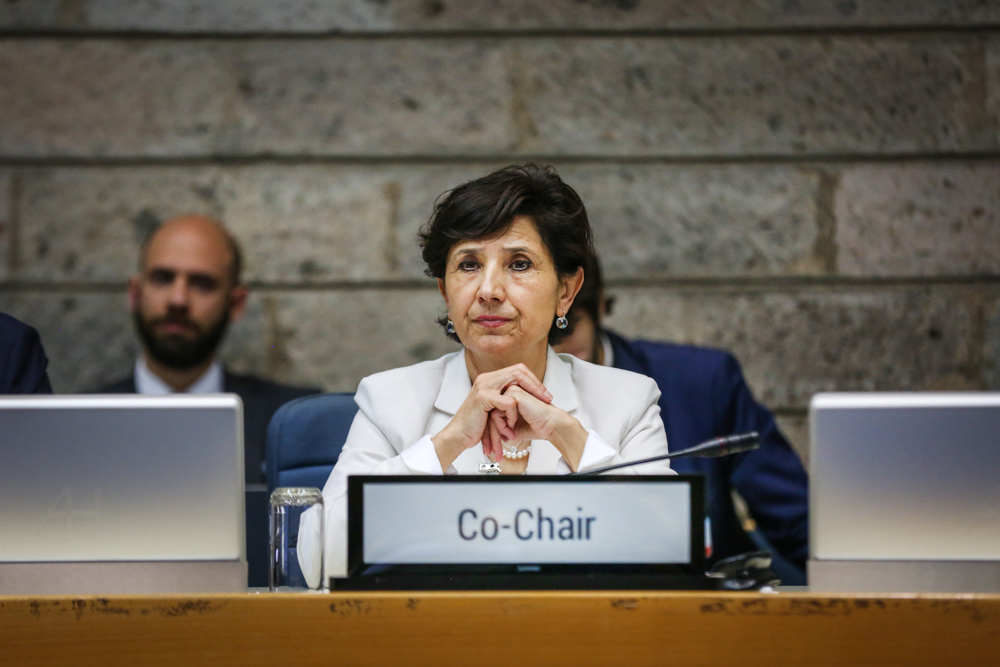
Co-Chair Amal Mudallali, Permanent Representative to the United Nations, Lebanon
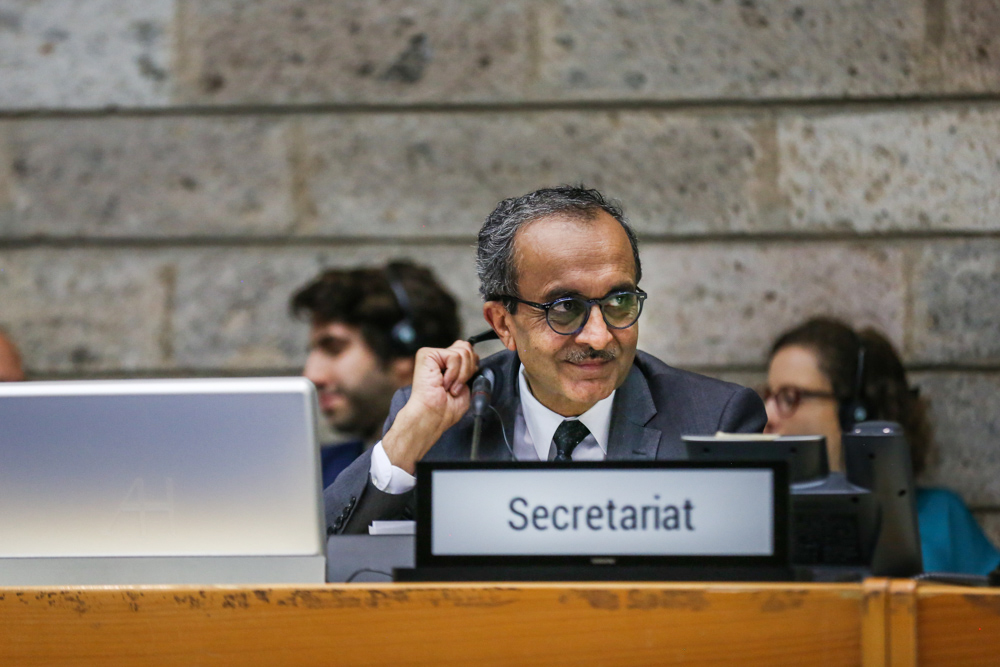
Jamil Ahmad, Director, New York Office, UNEP
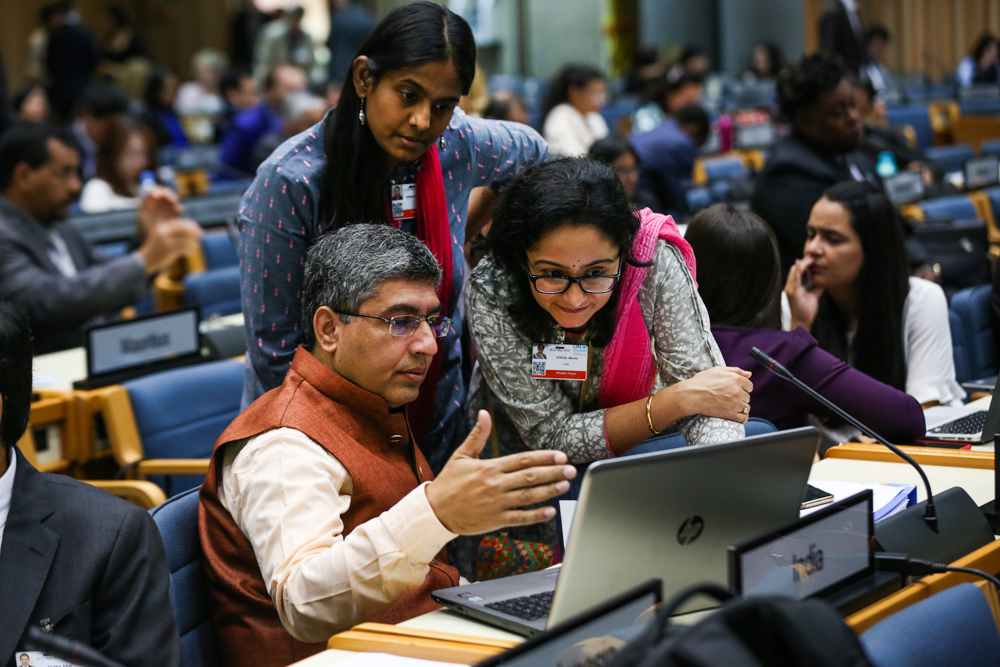
The delegation from India discusses the draft text.
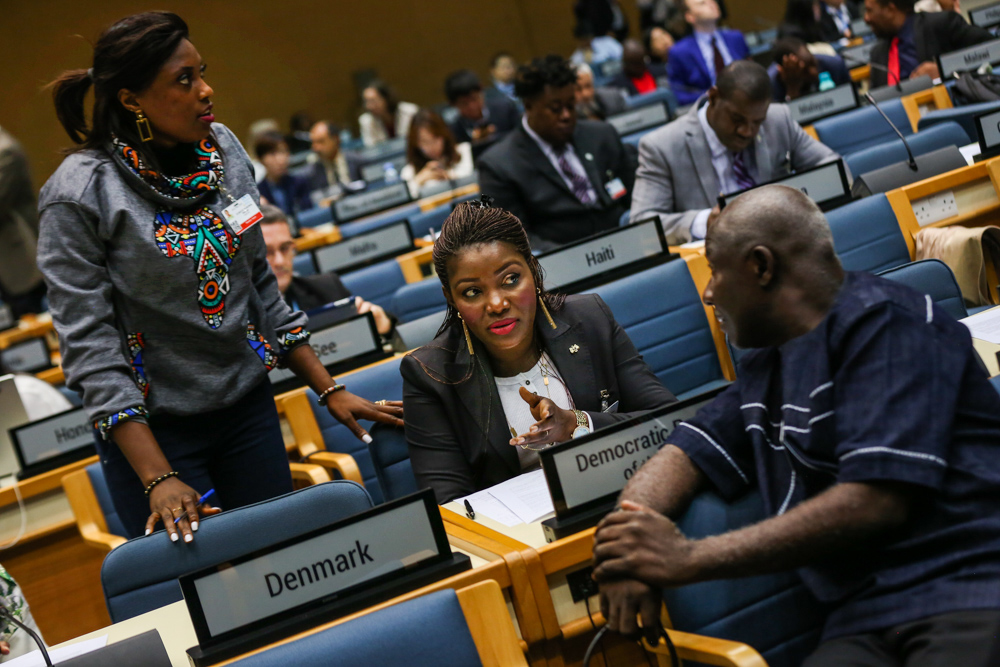
Delegates review the text during the discussions.
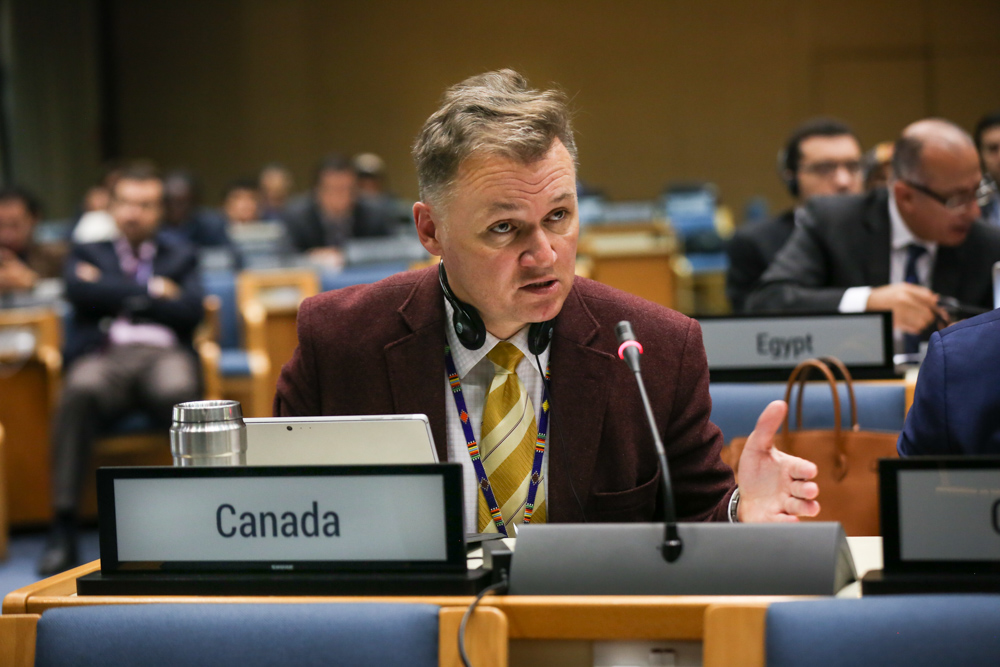
Marcus Davies, Canada
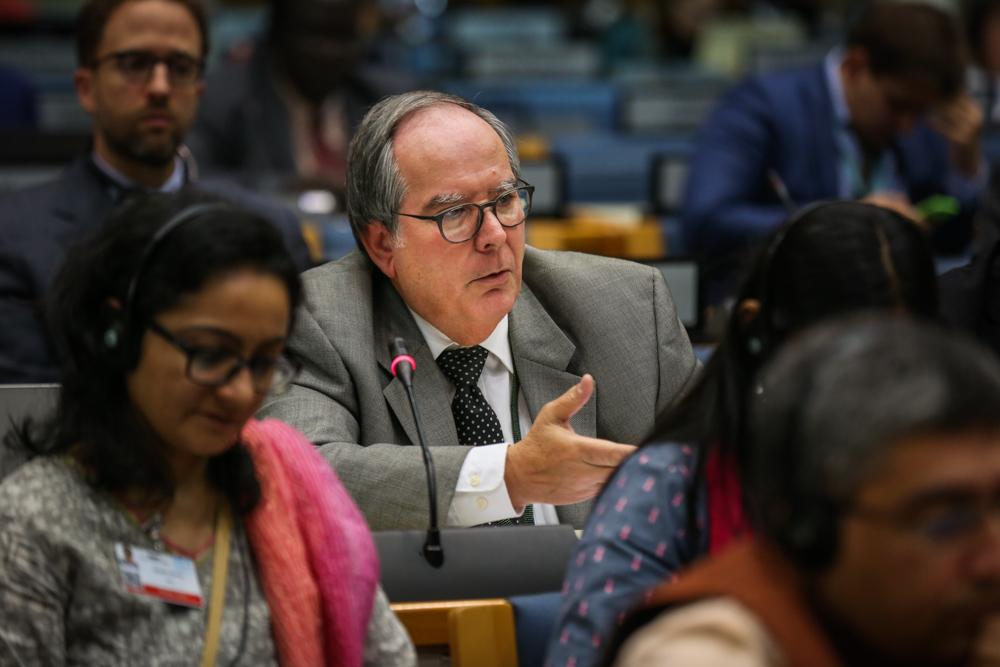
Erasmo Martinez, Mexico
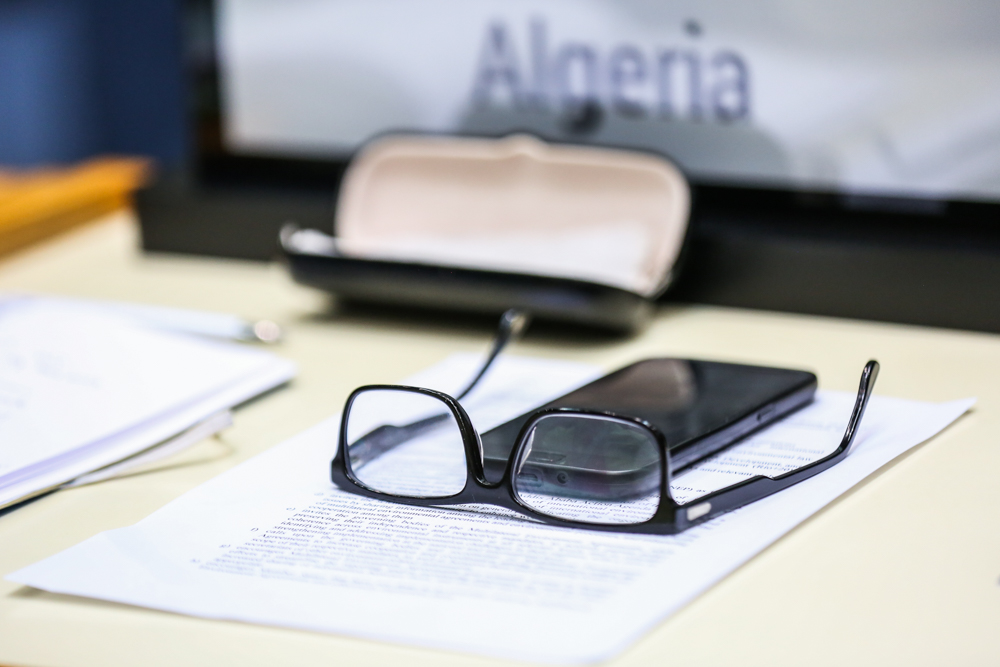
Inside the conference room.
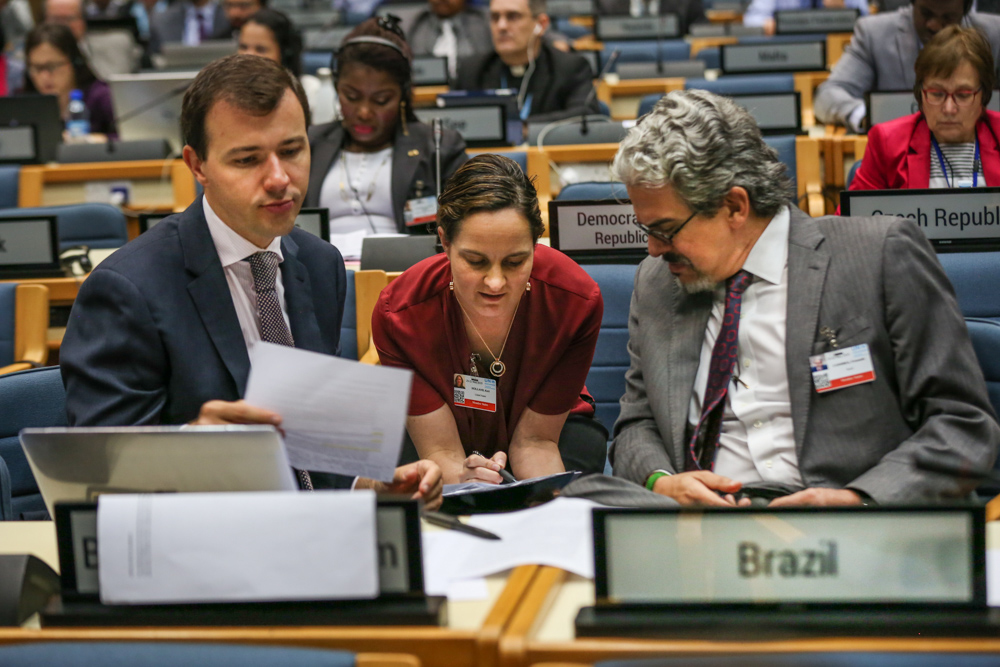
Patrick Luna, Brazil, Kerri Holland, United States, Fernando Coimbra, Brazil
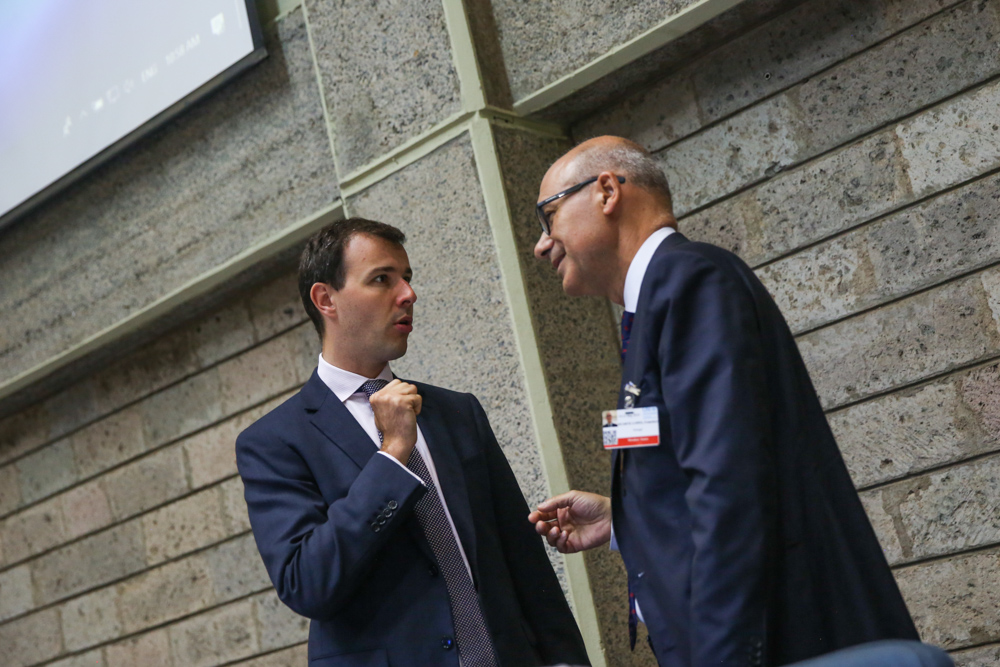
Patrick Luna, Brazil, talks to Co-Chair Francisco António Duarte Lopes, Permanent Representative of Portugal
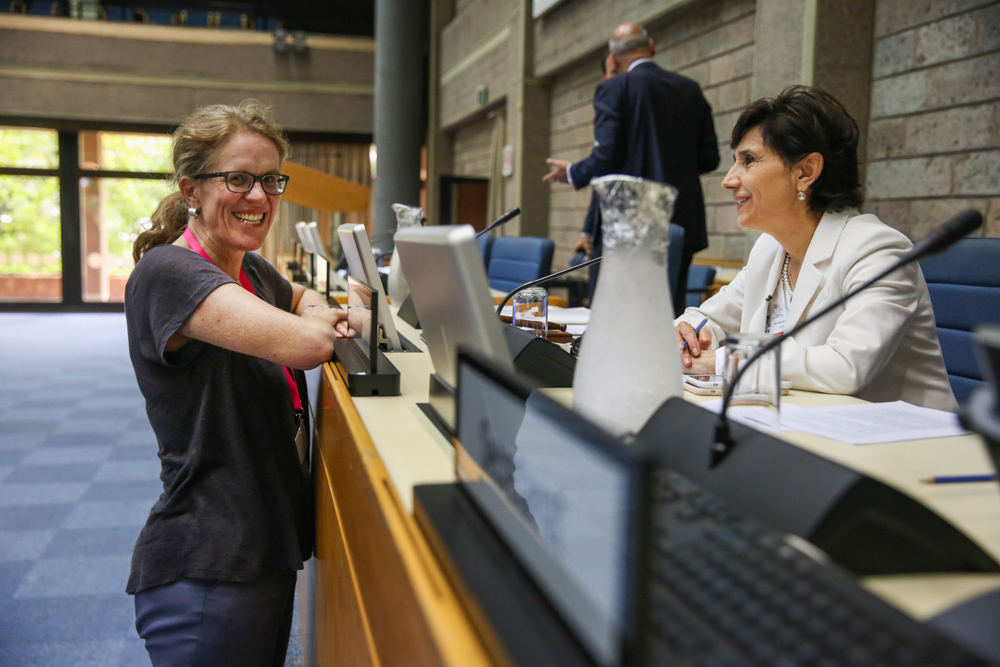
Solveig Crompton, Norway, confers with Co-Chair Amal Mudallali
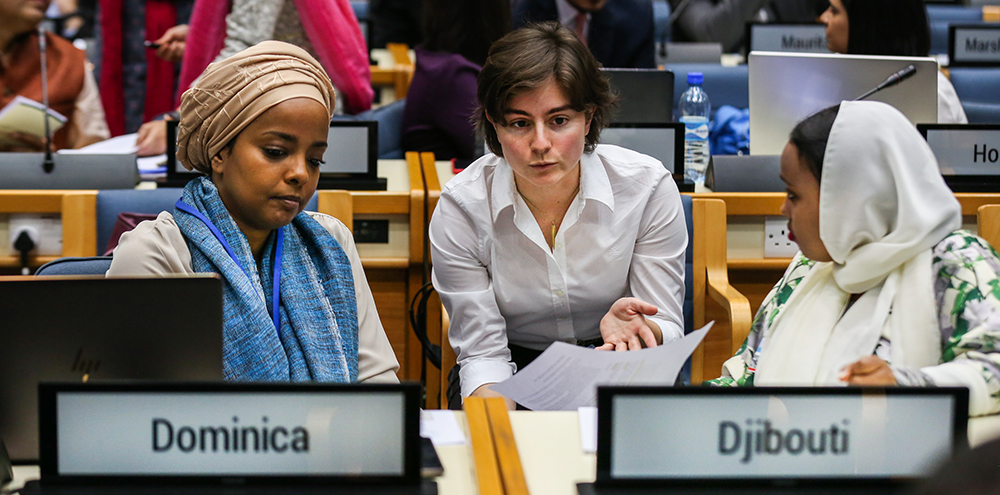
Haibado Ismael, Djibouti, Alexandra Lutz, CliMates, and Kadidja Amin Mohamed, Djibouti
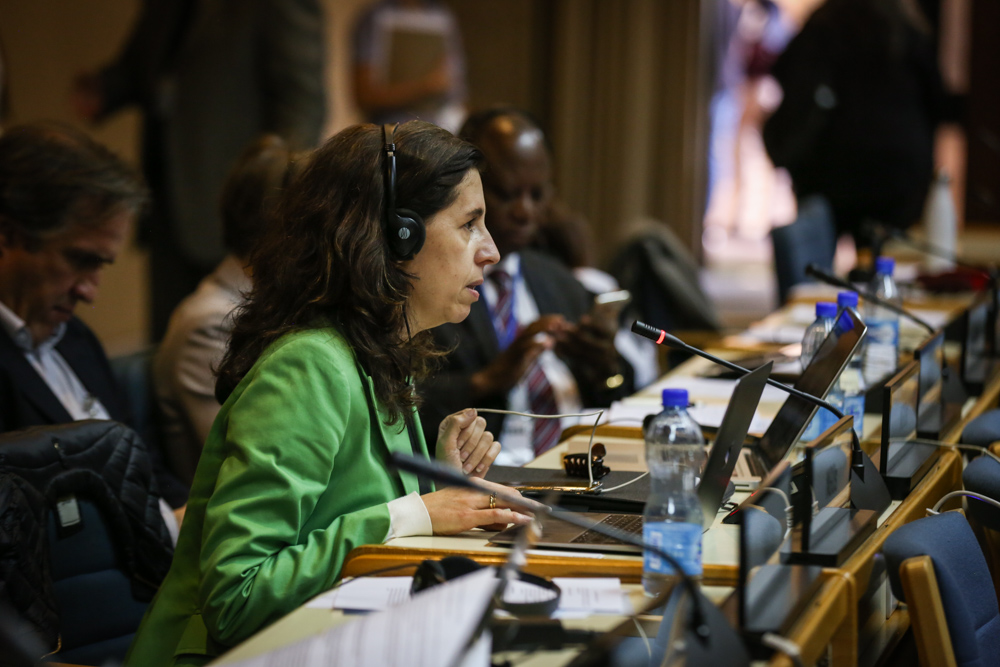
Ana Barreira, Instituto Internacional de Derecho y Medio Ambiente
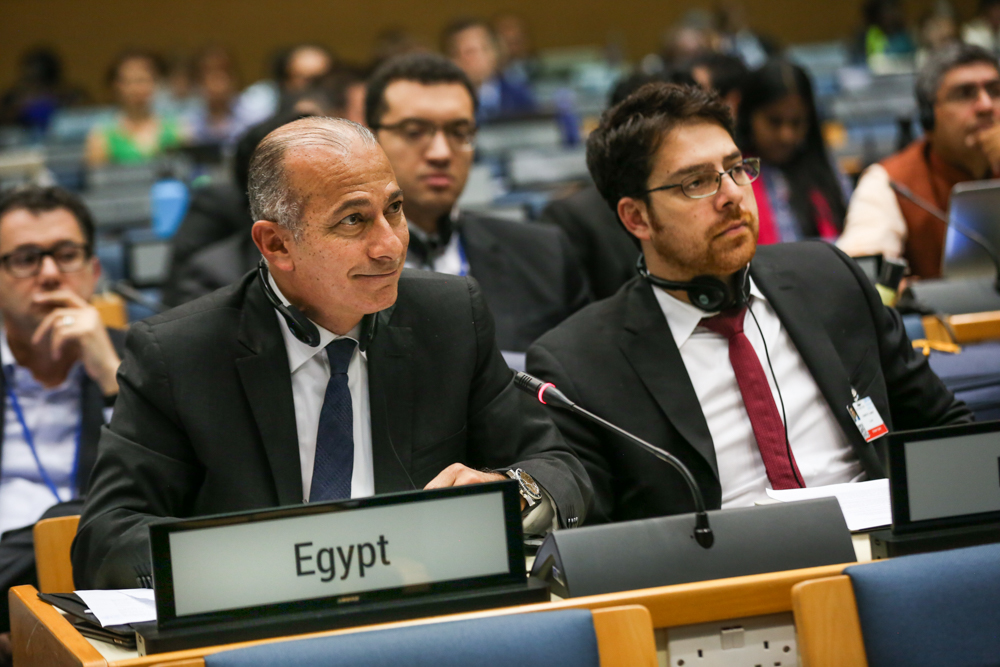
Wael Aboulmagd, Egypt, and Andres Cordova, Ecuador
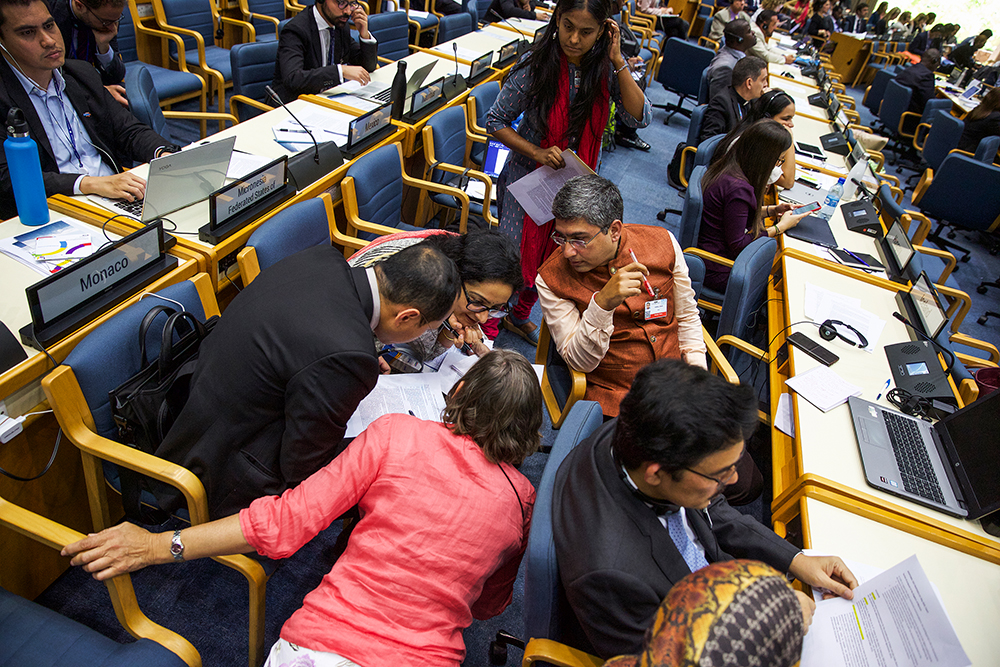
Delegates review the text.
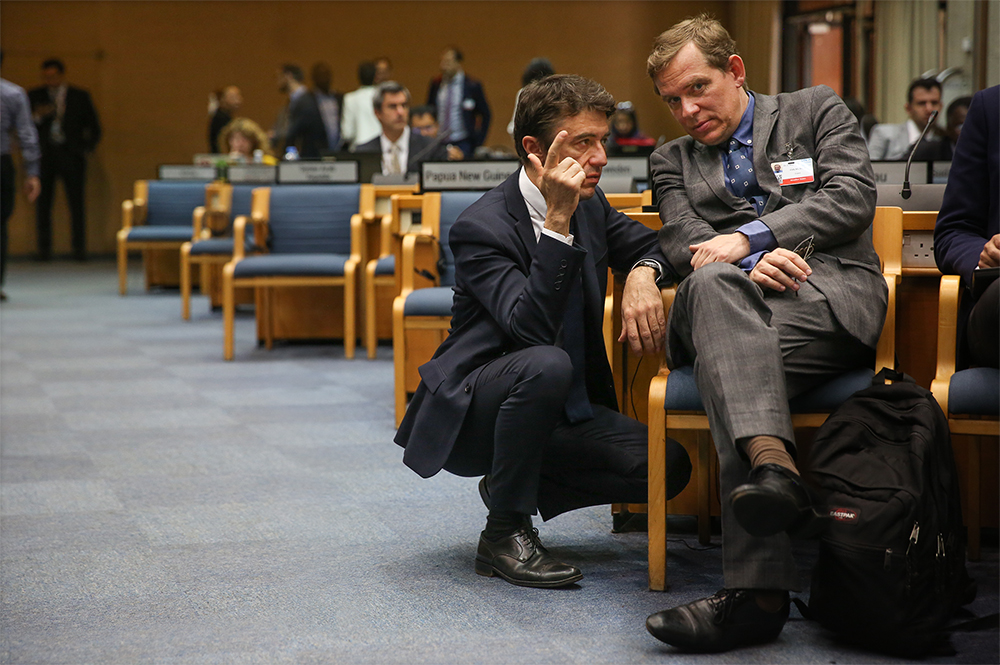
Delegates in discussion
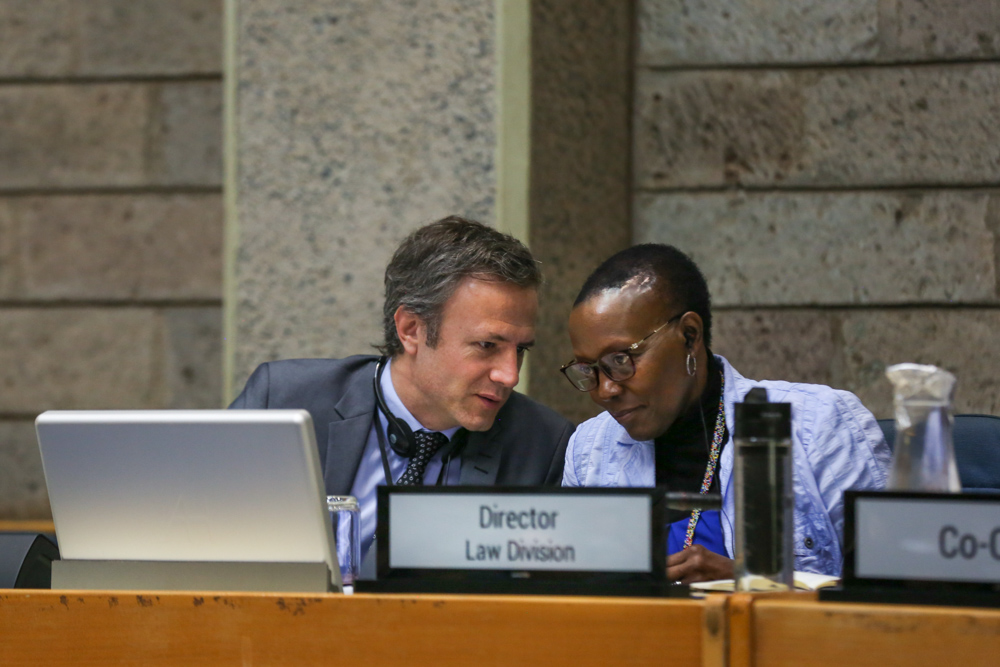
Arno Kreilhuber, UNEP, and Elizabeth Mrema, Director, Law Division, UNEP
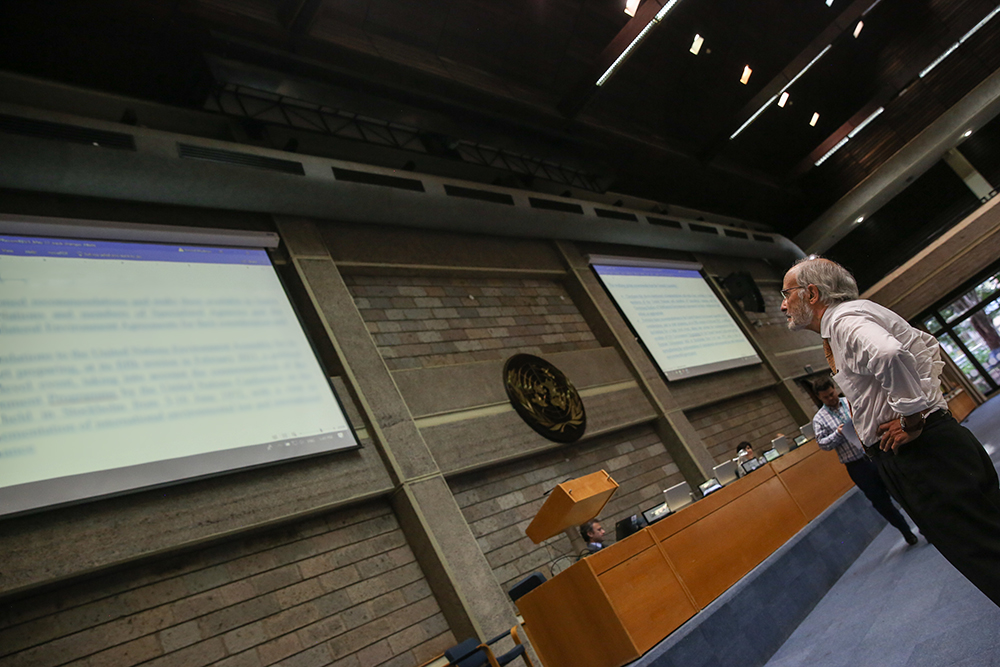
A delegate reviews the draft text.
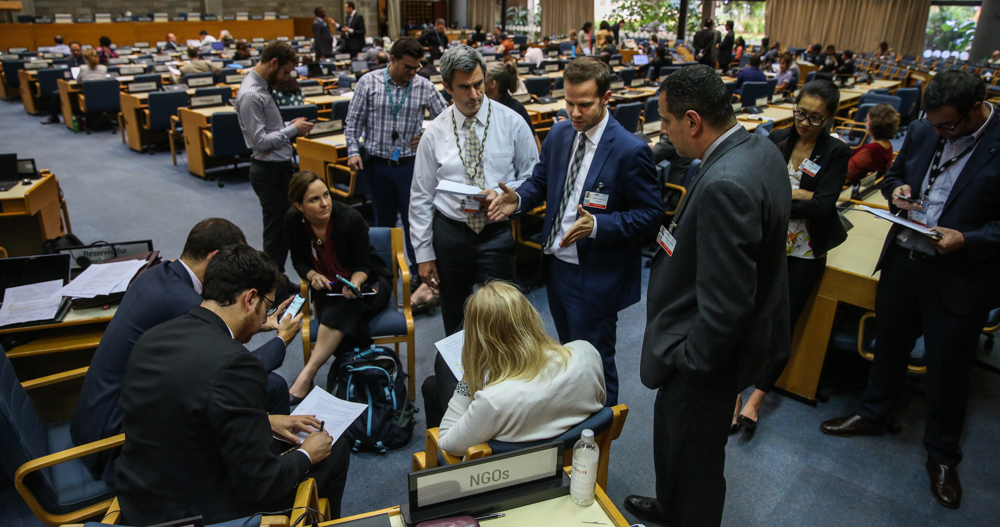
Delegates work on reaching a consensus during the break.
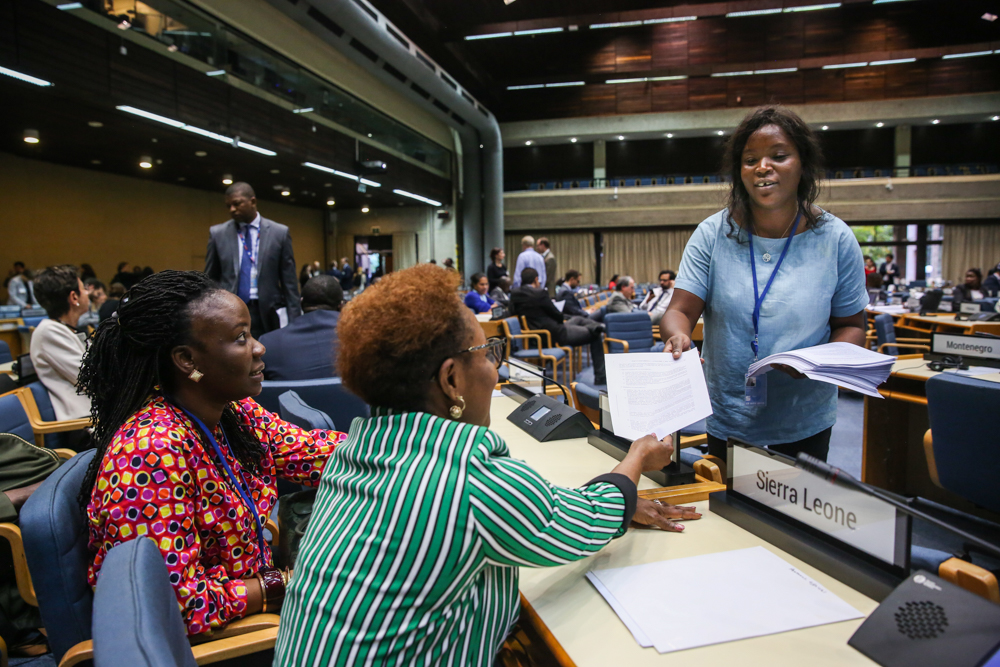
The Secretariat distributes the proposed text.
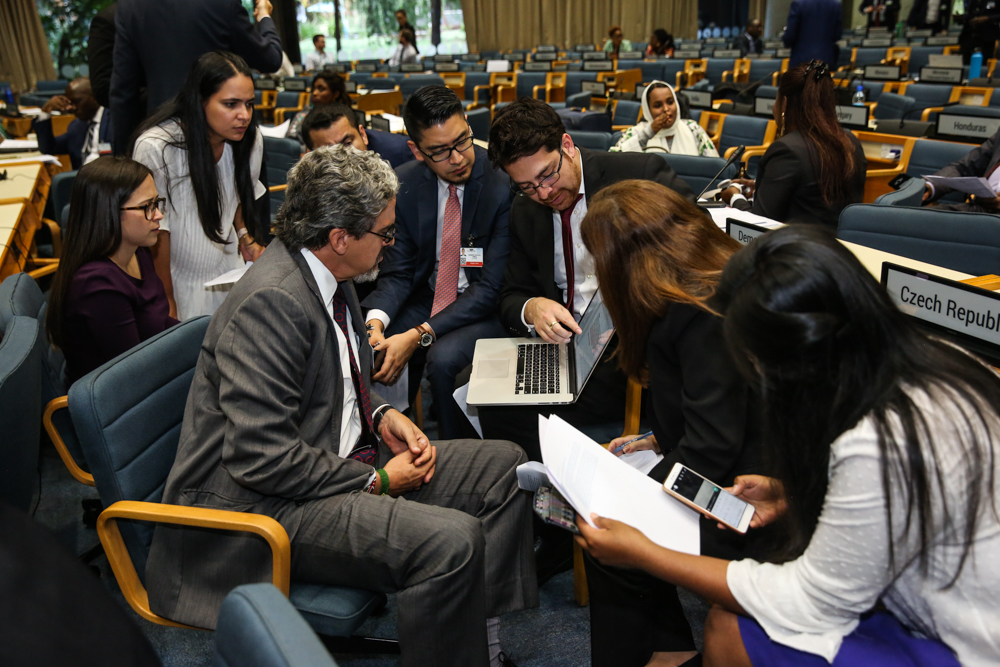
Delegates study the draft text.
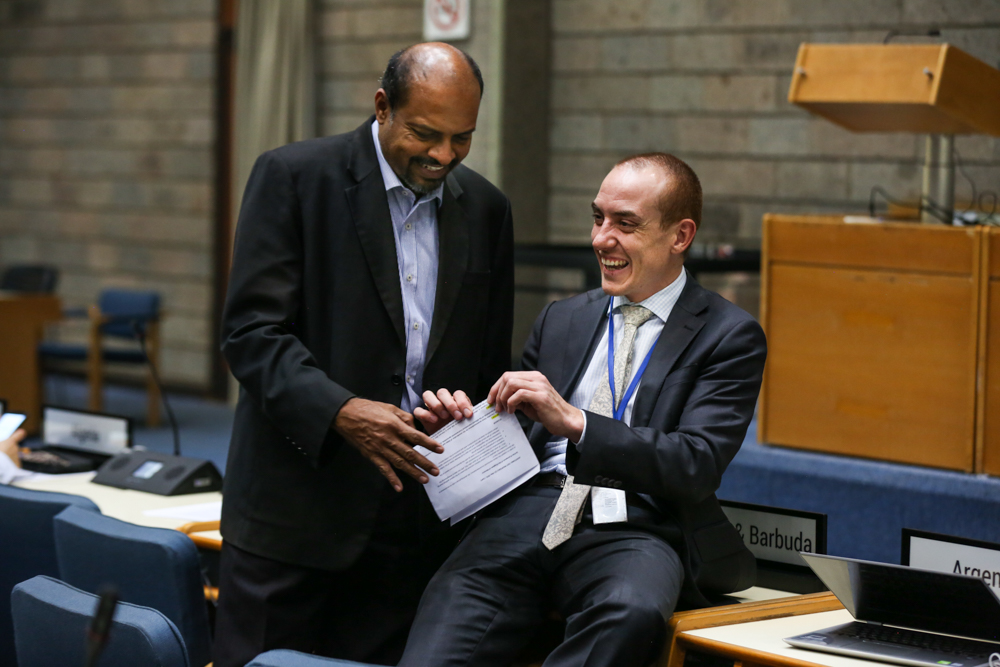
Delegates share a light moment.
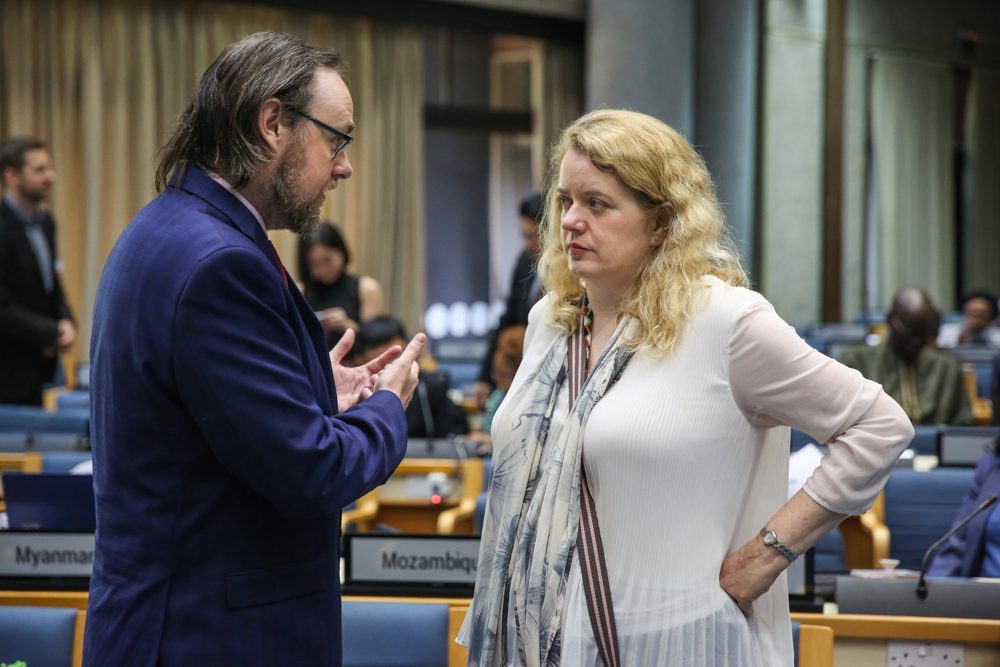
Delegates from Ireland in discussion
Informal morning breakout session, moderated by Norway and Colombia
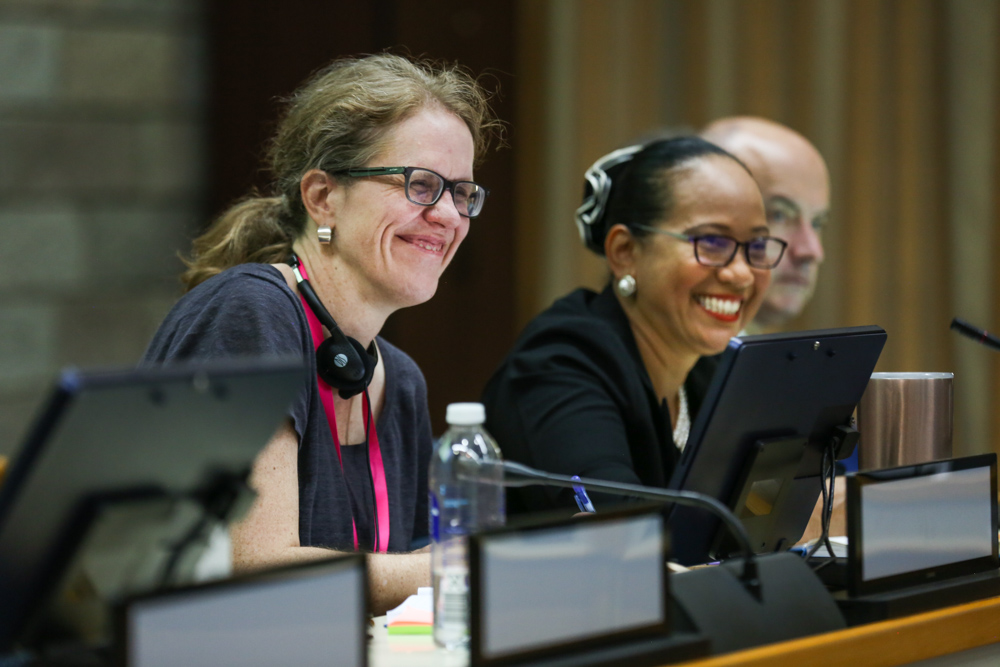
L-R: Delegates Solveig Crompton, Norway, and Elizabeth Taylor, Colombia, co-facilitate informal discussions.
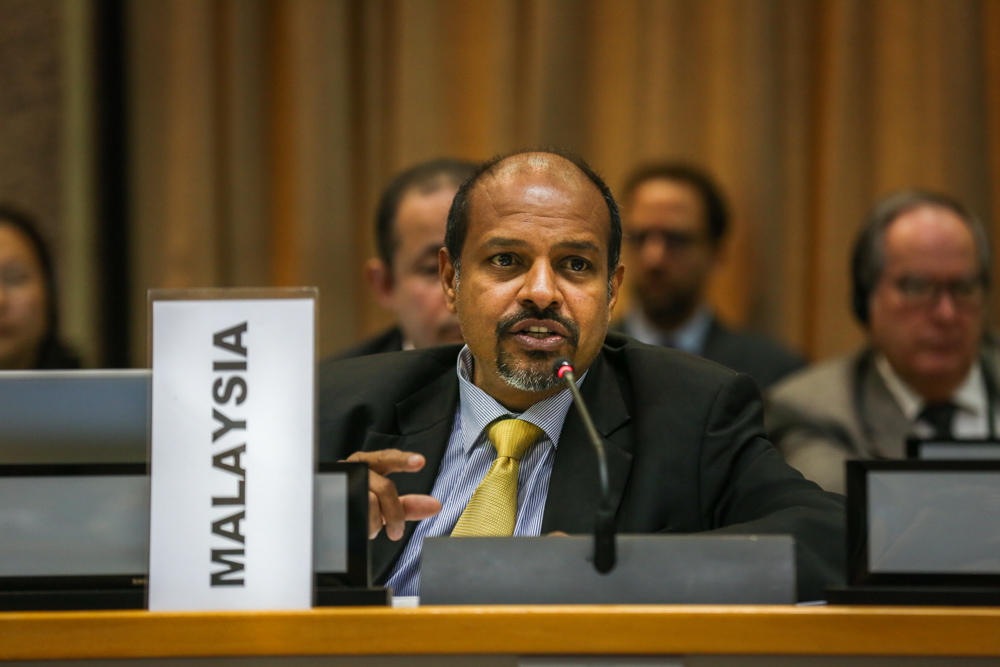
Kangayatkarasu Nagulendran, Malaysia
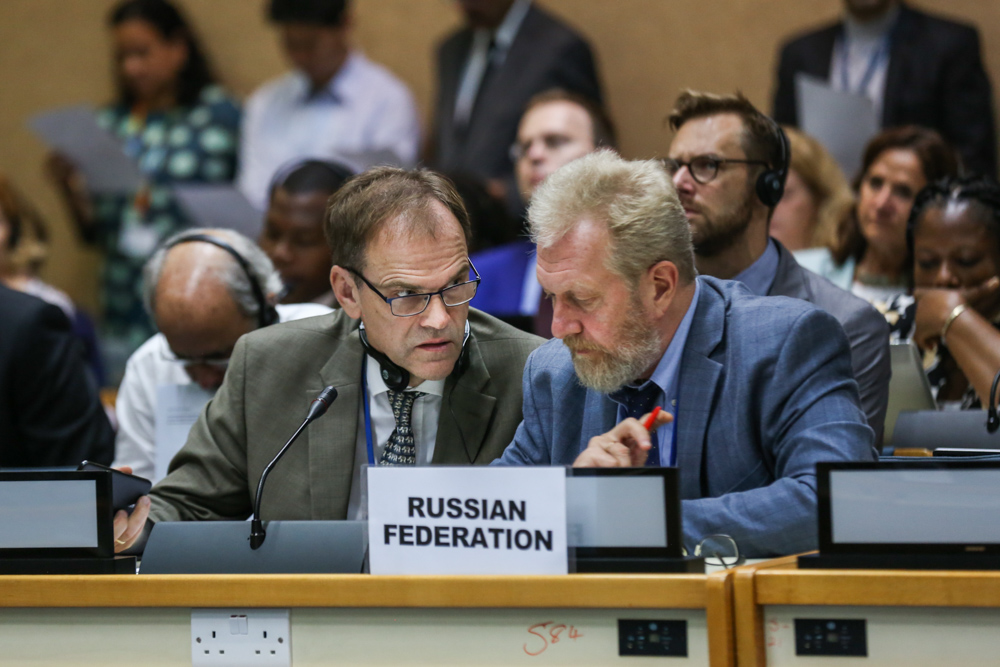
Delegates from the Russian Federation confer during the session.
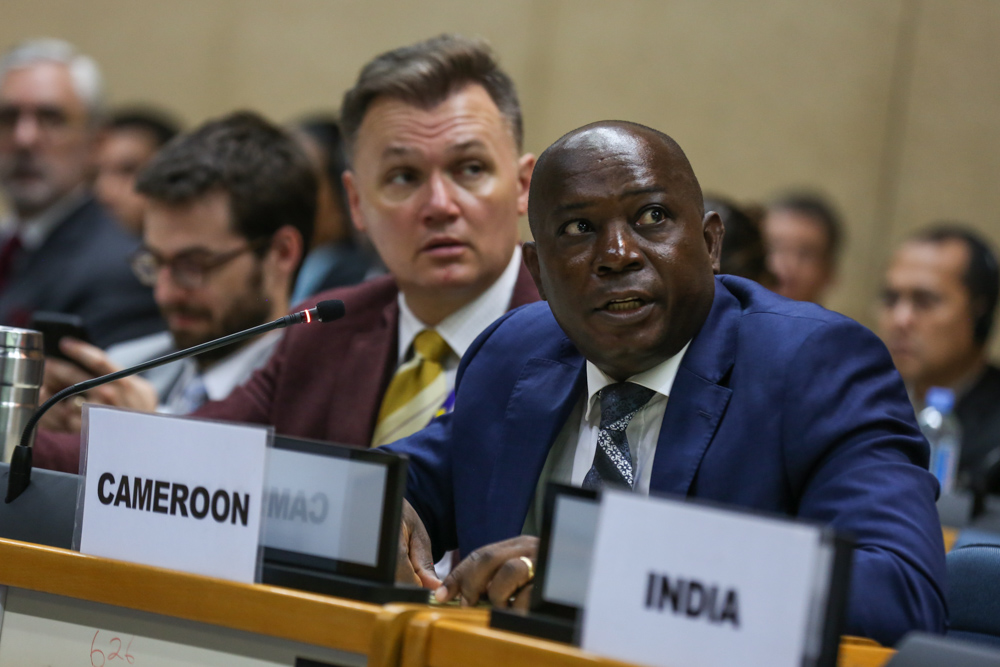
Jean Kenfack, Cameroon
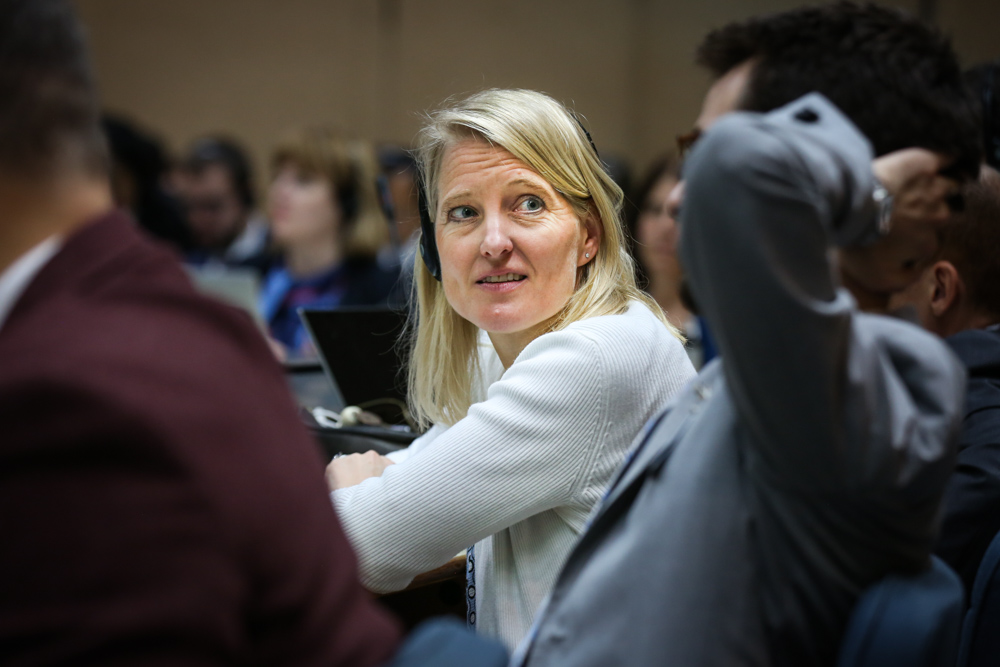
Kathryn Youel Page, United States
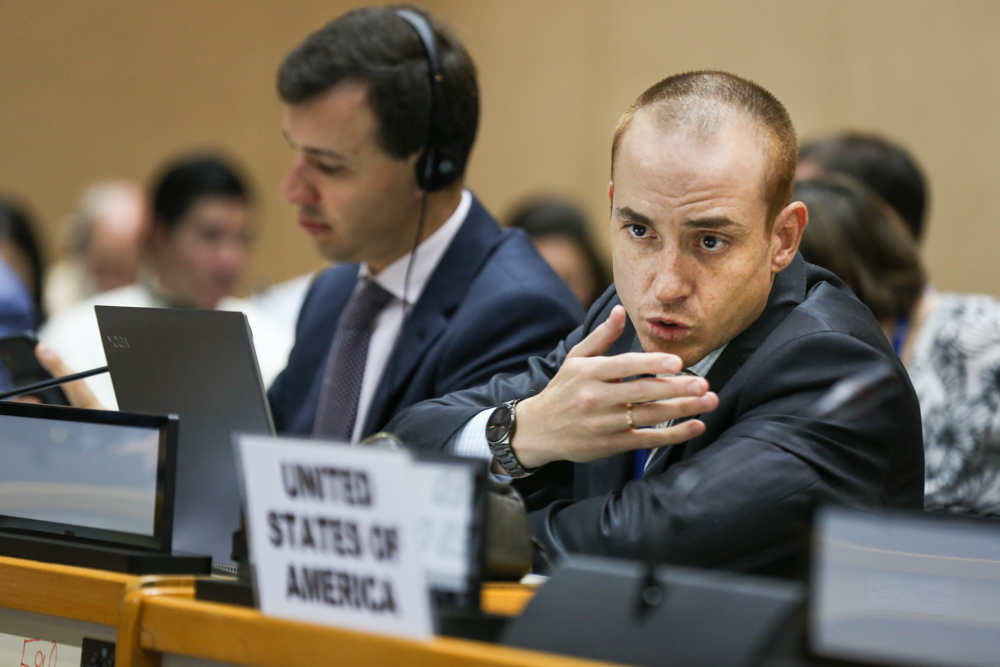
Martin Gronda, Argentina
Around the Venue
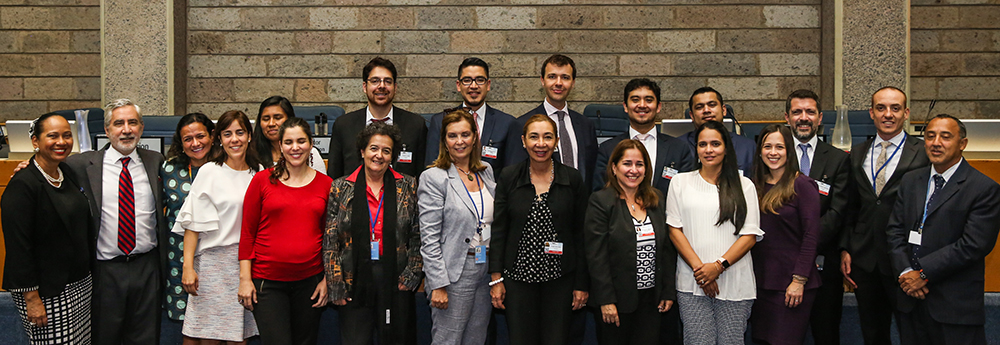
Latin American delegations pose for a group photo.
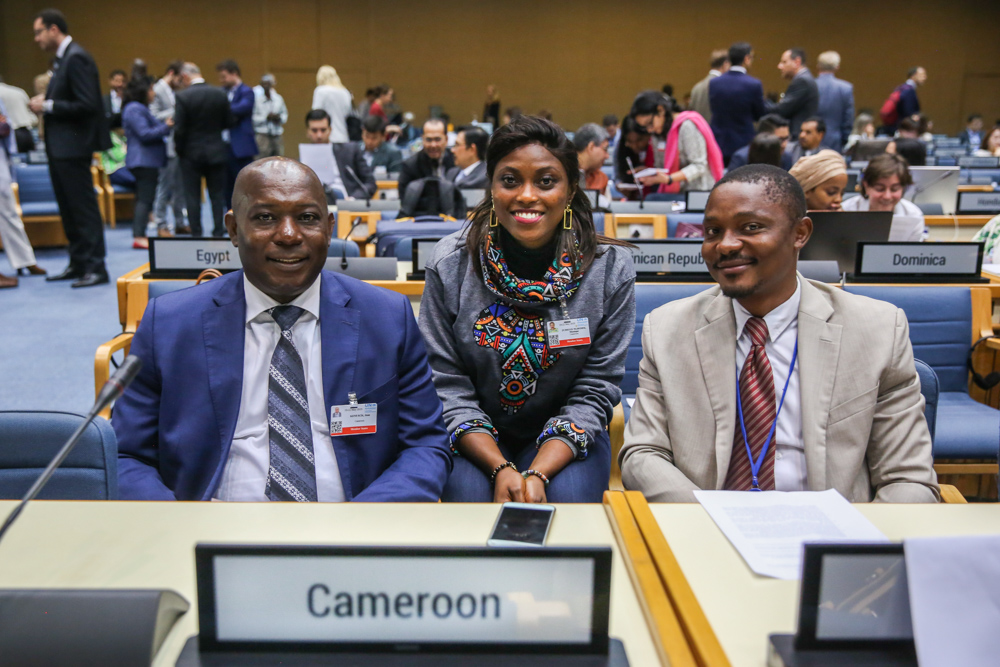
The delegation from Cameroon
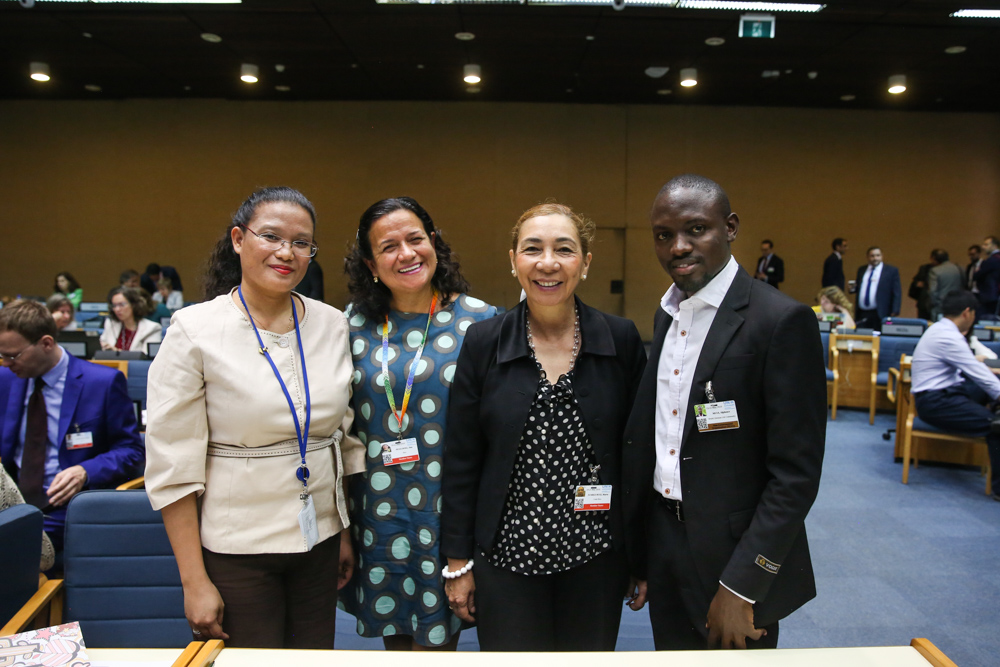
Delegates pose for a group photo.
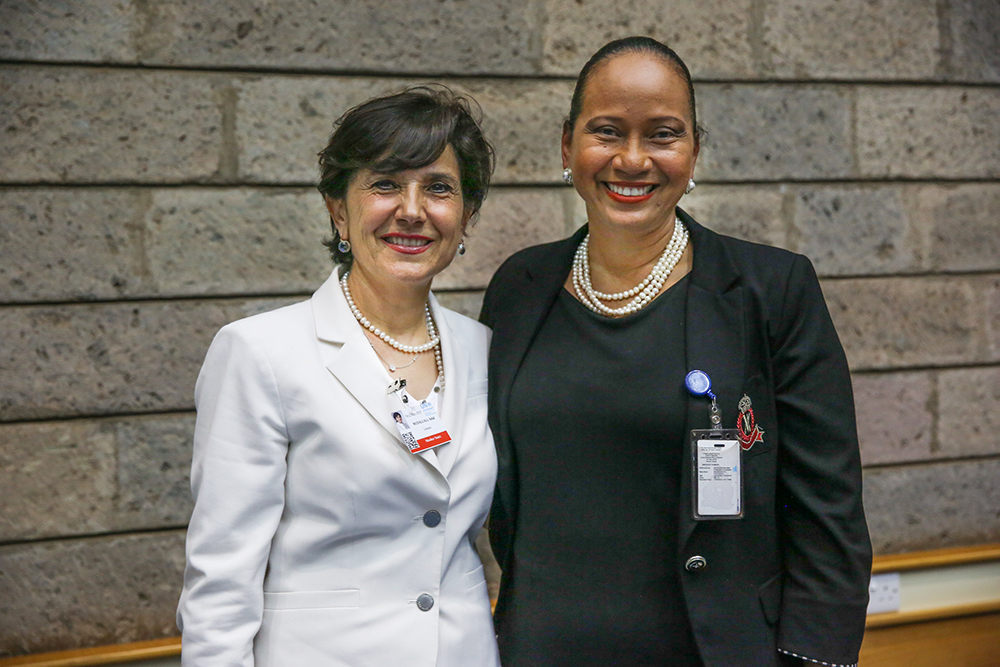
Co-Chair Amal Mudallali with delegate Elizabether Taylor, Colombia
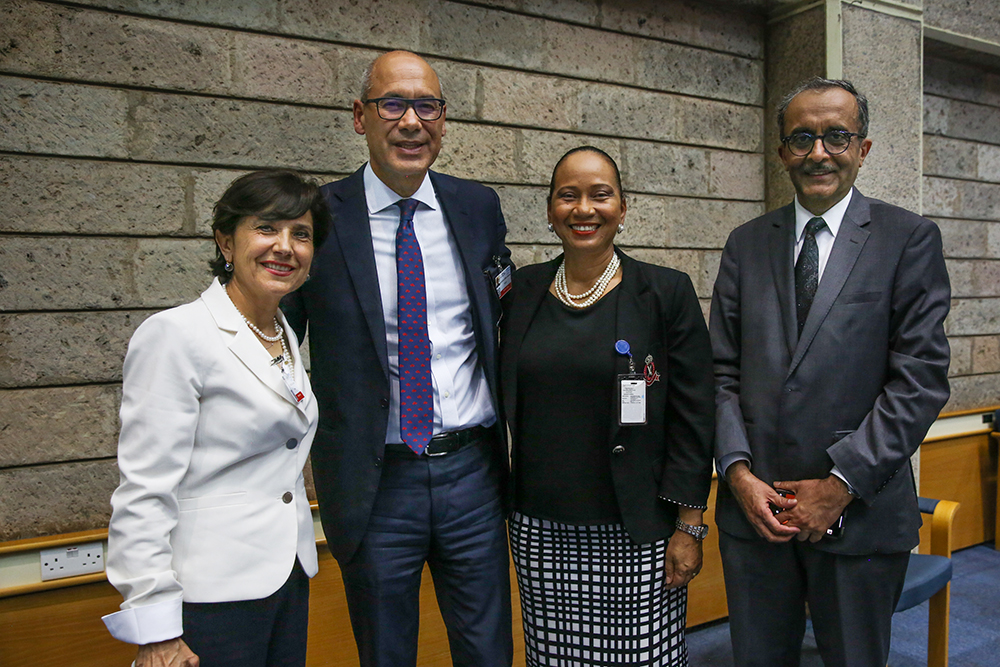
Panelists and delegates pose for a photo.

 The third and final session of the Ad Hoc Open Ended Working Group completed its work in the early hours of Thursday morning, having agreed a set of recommendations to the United Nations General Assembly. In closing remarks, Co-Chair Francisco António Duarte Lopes, Portugal, conceded that the outcome was a “weak result but consensual” which can and will be built upon. The continuing process is expected to culminate in a political declaration and a UN high level meeting in 2022, marking fifty years since the UN Conference on the Human Environment, at which UNEP was created. Just after 1.00 am on 23 May, the OEWG agreed to recommend to the UN General Assembly:
The third and final session of the Ad Hoc Open Ended Working Group completed its work in the early hours of Thursday morning, having agreed a set of recommendations to the United Nations General Assembly. In closing remarks, Co-Chair Francisco António Duarte Lopes, Portugal, conceded that the outcome was a “weak result but consensual” which can and will be built upon. The continuing process is expected to culminate in a political declaration and a UN high level meeting in 2022, marking fifty years since the UN Conference on the Human Environment, at which UNEP was created. Just after 1.00 am on 23 May, the OEWG agreed to recommend to the UN General Assembly:






















